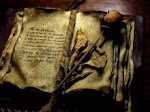International Mother Language Day: Remembering Dhirendranath Dutta and others who died for Bengali language
On February 25, 1948, Dhirendranath Dutta had urged the Constituent Assembly of Pakistan (CAP) to recognise Bengali as one of the official languages. Dutta till his last breath fought for the independence of his country and was tortured to death in the Mainamati Cantonment in 1971.
Dhirendranath Dutta portrait. (Source: Wikimedia commons)
March 21, 1948. ‘Quaid-I-Azam’ Muhammad Ali Jinnah declares that Urdu will be the only official language of Pakistan besides English. From Dhaka’s Race Course Maidan, he says, “Let me make it very clear to you, it is no doubt that the state language of Pakistan is going to be Urdu and no other language. Anyone who tries to mislead you is really the enemy of Pakistan.”
Jinnah’s declaration hurt the sentiments of Bengali dominated East Pakistan. On February 25, 1948, Dhirendranath Dutta had urged the Constituent Assembly of Pakistan (CAP) to recognise Bengali as one of the official languages. Dutta till his last breath fought for the independence of his country and was tortured to death in the Mainamati Cantonment in 1971.
Born on November 2, 1886, Dutta did his elementary education in Bangladesh, and secured higher degrees from the Calcutta Ripon College in 1908 and 1910. His father Jagabandhu Dutta was a serestedar in the Munsif Court. As a student, Dutta was very much motivated into the nationalist movement and took an active part for the annulment of the Partition of Bengal.
Completing his education, he took the job of teacher at Bangura Umalochan High English School, Muradnagar as an Assistant Headmaster. During this time, he got motivated by Gandhi, and established a social welfare organisation, ‘the Mukti Sangha’. During the 1943 famine, he was actively engaged in the relief mission.
In 1946, Dutta was elected a member of the Bengal Legislative Council on a Congress ticket. After Independence, Dhirendranath participated in Pakistan politics as a non-communal politician. In June 1954, Dutta moved an adjournment motion against the promulgation of Governor’s rule in East Pakistan. He was the Health and Social Welfare Minister in the cabinet led by Ataur Rahman Khan from September 19, 1956 to October 7, 1958.
During the 1965 Indo-Pak war, the Pakistan government put Dutta under house arrest, but his struggle for independent Bengali continued. Just a few months before, the country got its independence, Dutta and his son Dilipkumar Dutta was tortured to death in the Mainamati Cantonment in 1971. In remembrance of the martyr, the Bangladesh government named the road in front of his house after him.
Martyrs of Bengali language movement on February 21, 1952
Abul Barkat (1927-1952)
Abul Barkat was born on June 13, 1927, at Babla village of Murshidabad district to father Shamsuzzoha and mother Hasina Bibi. Barkat, a student of Bahrampur Krishnanath College completed his schooling in India, before he came to Dhaka after partition in 1948. He obtained BA (Hons) in Political Science from Dhaka University in 1951 and got admitted into MA final year.
In the morning of February 21, 1952, Barkat was in the procession that students took out from Dhaka Medical College hostel violating Section 144 that was clamped to contain student agitation. The police suddenly fired on the gathering. Barkat was hit and taken to Dhaka Medical College Hospital where he died later that day. He was buried in Azimpur graveyard. The Bangladesh government awarded him with Ekushey Padak (posthumously) in 2000 AD.
Rafiq Uddin Ahmed (1926-1952)
Rafiq Uddin Ahmed was born on October 30, 1926, at Paril village, Manikganj district. After completing his matriculation from Baira School in 1949, he discontinued his studies to work in his father’s commercial printing business in Dhaka. Rafiq Uddin joined the February 21 demonstration and was shot on the premises of Dhaka Medical College Hostel. He was laid to rest in Azimpur graveyard under an army guard. Rafiq Uddin was awarded Ekushey Padak posthumously in February 2000 for his supreme sacrifice for the Bengali language.
Abdus Salam (1925-1952)
Born on November 27, 1925, in the village Laxmanpur in Feni district to Munshi Abdul Fazel Miah and mother Daulater Nesa, Salam had to discontinue education after matriculation due to financial problem. He did his schooling from Matubhuiyan Kalimullah Minor School and Daganbhuiyan Kamal Ataturk High School. He moved to Kolkata to work in Kolkata port, but after Independence came back to Dhaka and started working as a record keeper in the department of industries.
On February 21, 1952, when police fired on the protesting students, Salam was badly injured and taken to Dhaka Medical College for treatment. He succumbed to the bullet wounds on April 7, 1952. He was laid to rest in Azimpur graveyard.
The Bangladesh government awarded him with ‘Ekushey Padak’ in February 2000. Soon after this recognition, Rasa initiated an effort to make a portrait of Abdus Salam with a group of artists and sculptors Abdul Mannan, Alokesh Ghosh, Ahamed Shamsuddoha, Shajahan Ahamed Bikash, Sheikh Afzal and sculptor Rajeeb Siddiqee. He named this initiative as ‘’Astitver Shekade Alo’.
In 2000, Mohammad Shahadat Hossain, editor and staff reporter, the weekly Alokita Feni and Nayadiganta, founded ‘Bhasha-Shahid Abdus Salam Smriti Parishad’ in remembrance of Abdus Salam. The Bangladesh government founded ‘Language Martyr Abdus Salam Library and Memorial Museum’ in 2008, adjacent to the primary school of Salam Nagar. In memoir of Salam, the local people of Laxmanpur village named it as ‘Salam Nagar’.
Abdul Jabbar (1919-52)
Abdul Jabbar was born in 1919 in Panchua village of Mymensingh district. Due to financial problem, after completing his elementary education he joined in his father’s agricultural work. To make his fortune, at the age of 15, he moved to Burma with the help of an Englishman. On the eventful day of 1952, Jabbar came to Dhaka for the medical treatment of his mother-in-law, a cancer patient. After getting his mother-in-law admitted to Dhaka Medical College Hospital, Jabbar joined the assembly at Dhaka Medical College Hostel. As police started heavy firing, Jabbar was badly injured and admitted to Medical College Hospital where he breathed his last. In recognition of his sacrifice, the Bangladesh government awarded Abdul Jabbar with Ekushey Padak in 2000 AD.
Shafiur Rahman (1918- 1952)
Rahman was born in Konnagar, Hooghly on January 24, 1918. After completing his education in Kolkata, he moved to Dhaka after Independence and got a job at accounts section of the Dhaka High Court. On February 22, 1952, a day after the massacre at Dhaka, Rahman was killed in police firing at Nawabpur Road on his way to work. He breathed his last at Dhaka Medical College and was laid to rest at Azimpur graveyard along with other martyrs. Two days after the incident, his father Hakim Mahbubur Rahman inaugurated the first Shaheed Minar with the protesting students of Dhaka University.
Excerpts from Dhirendranath Dutta’s speech in Parliament on February 25, 1948
Sir, in moving this– the motion that stands in my name– I can assure the House that I do so not in a spirit of narrow Provincialism, but, Sir, in the spirit that this motion receives the fullest consideration at the hands of the members. I know, Sir, that Bangla is a provincial language, but so far our state is concerned, it is the language of the majority of the People of the state.
So although it is a provincial language, as it is a language of the majority of the people of the state and it stands on a different footing, therefore. Out of six crores and ninety lakhs of people inhabiting this State, 4 crores and 40 lakhs of people speak the Bangla language. So, Sir, what should be the State language of the State? The State language of the state should be the language which is used by the majority of the people of the State, and for that, Sir, I consider that Bangla language is a lingua franca of our State.
It may be contended with a certain amount of force that even in our sister dominion the provincial language has not got the status of a lingua franca because in her sister dominion of India the proceedings of the Constituent Assembly is conducted in Hindustani, Hindi or Urdu or English.
It is not conducted in the Bangla language but so far as the Bangla is concerned out of 30 crores of people inhabiting that sister dominion two and a half crores speak the Bangla language. Hindustani, Hindi or Urdu has been given an honoured place in the sister dominion because the majority of the people of the Indian Dominion speak that language. So we are to consider that in our state it is found that the majority of the People of the state do speak the Bangla language than Bangla should have an honoured place even in the Central Government.
I know, Sir, I voice the sentiments of the vast millions of our State. In the meantime I want to let the House know the feelings of the vastest millions of our State. Even, Sir, in the Eastern Pakistan where the People numbering four crores and forty lakhs speak the Bangla language the common man even if he goes to a Post Office and wants to have a money order form finds that the money order is printed in Urdu language and is not printed in Bangla language or it is printed in English.
A poor cultivator, who has got his son, Sir, as a student in the Dhaka University and who wants to send money to him, goes to a village Post Office and he asked for a money order form, finds that the money order form is printed in Urdu language. He can not send the money order but shall have to rush to a distant town and have this money order form translated for him and then the money order, Sir, that is necessary for his boy can be sent.
The poor cultivator, Sir, sells a certain plot of land and goes to the Stamp vendor and pays him money but cannot say whether he has received the value of the money is Stamps. The value of the Stamp, Sir, is written not in Bangla but is written in Urdu and English. But he cannot say, Sir, whether he has got the real value of the Stamp.
These are the difficulties experienced by the Common man of our State. The language of the state should be such which can be understood by all. The common man numbering four crores and forty million feels that the proceedings of this Assembly which is their mother of parliaments is being conducted in an alien language.
I am aware that English has got an honoured place because of its International Character. But, Sir, if English can have an honoured place in Rule 29 then the proceedings of the Assembly should be conducted in Urdu or English instead of Bangla, which is spoken by four crores forty lakhs of people. It should not have an honoured place in Rule 29 of the Procedure Rules. So, Sir, I know I am voicing the sentiments of the vast millions of our State and therefore, Bangla should not be treated as a Provincial Language.
It should be treated as the language of the State. And therefore, Sir, I suggest that after the word ‘English’, the words ‘Bangla’ be inserted in Rule 29. I do not wish to detain the House but I wish that the Members present here should give a consideration to the sentiments of the vast millions of over State, Sir, and should accept the amendment that has been moved by me.
For all the latest Lifestyle News, download Indian Express App




















No hay comentarios:
Publicar un comentario